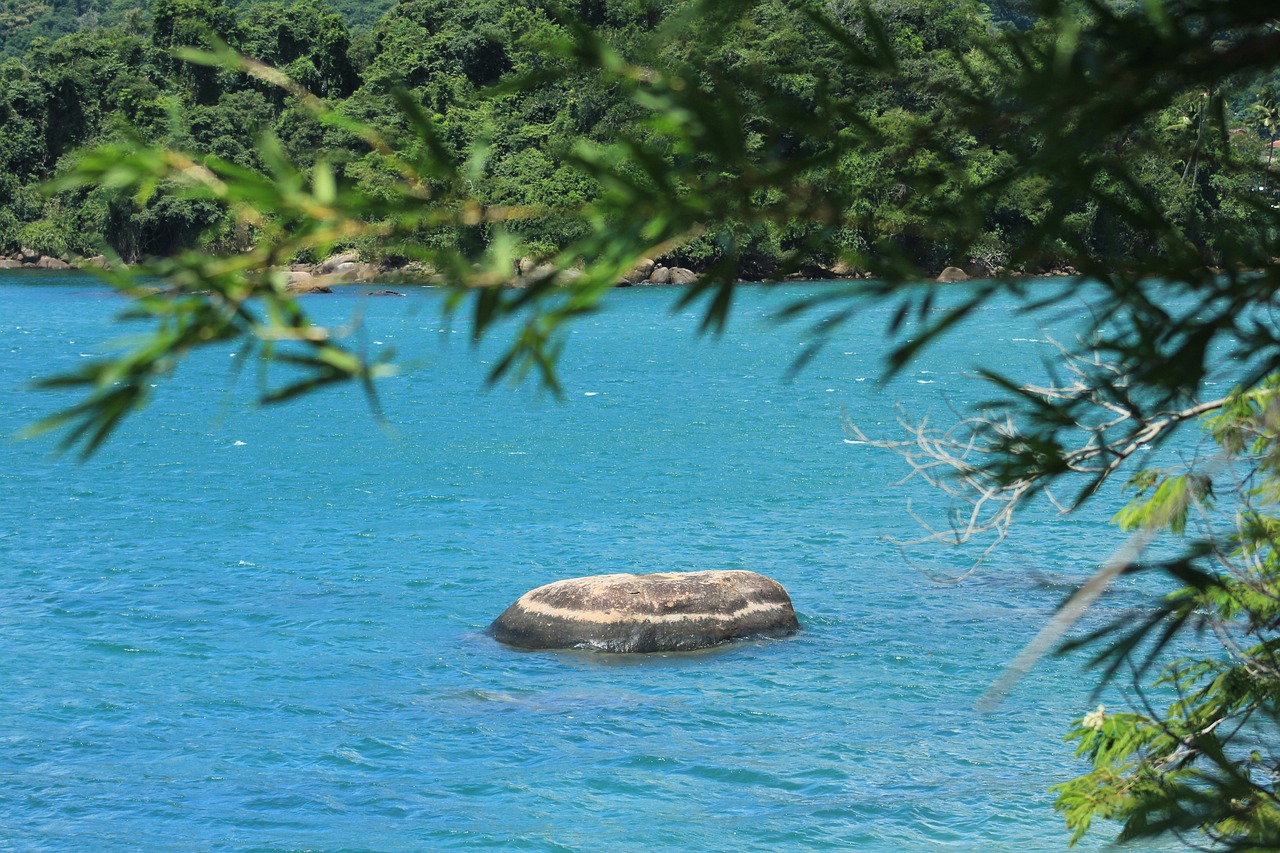How to Minimize Your Environmental Impact in Brazil’s Rio de Janeiro
Exploring sustainable practices and eco-friendly initiatives is crucial to reducing your environmental footprint while visiting the vibrant city of Rio de Janeiro. By making conscious choices and adopting environmentally friendly habits, you can contribute to the preservation of Rio's natural beauty and support the city's efforts towards sustainability.

Public Transportation Options
Exploring sustainable practices and eco-friendly initiatives to reduce your environmental footprint while visiting the vibrant city of Rio de Janeiro.
When it comes to getting around Rio de Janeiro, opting for public transportation is not only convenient but also environmentally friendly. The city offers a range of efficient and eco-friendly modes of transportation to help you reduce your carbon footprint and combat traffic congestion.
One of the most popular choices is the extensive bus network that covers various parts of the city, providing a cost-effective and sustainable way to travel. Additionally, the metro system in Rio de Janeiro is known for its reliability and speed, making it a great option for reducing emissions while exploring the city.
If you prefer a more scenic route, you can also hop on the iconic bonde, a historic tram that runs through the charming neighborhood of Santa Teresa, offering a unique and eco-conscious way to experience the city.
By choosing public transportation over private vehicles, you not only contribute to a cleaner environment but also support the city's efforts to improve air quality and reduce traffic-related issues.

Waste Management Strategies
Exploring sustainable practices and eco-friendly initiatives to reduce your environmental footprint while visiting the vibrant city of Rio de Janeiro.
When it comes to waste management in Rio de Janeiro, adopting proper disposal techniques and supporting recycling programs are crucial steps in minimizing environmental pollution. By segregating your waste and recycling materials, you can contribute to reducing the strain on landfills and decreasing the overall environmental impact of the city.
One effective strategy is to familiarize yourself with the local recycling guidelines and separate recyclable items such as plastic, glass, paper, and metal from general waste. Many neighborhoods in Rio have designated recycling centers where you can drop off your recyclables, ensuring they are properly processed and reused.
Additionally, consider reducing single-use plastic consumption by carrying a reusable water bottle and shopping bag. These small changes can significantly reduce the amount of plastic waste generated during your stay in Rio de Janeiro.
Supporting initiatives that promote waste reduction and proper disposal is also essential. Look for eco-friendly businesses that prioritize sustainable practices and participate in community clean-up events to actively contribute to a cleaner environment in Rio de Janeiro.
By incorporating waste management strategies into your daily routine while exploring the city, you can play a part in preserving Rio de Janeiro's natural beauty and promoting a more sustainable future for generations to come.

Conservation Projects and Initiatives
When it comes to conservation projects and initiatives in Rio de Janeiro, there are numerous opportunities for visitors to get involved and make a positive impact on the environment. One notable initiative is the Tijuca National Park, a sprawling urban rainforest that serves as a critical habitat for diverse wildlife species. By supporting the park through donations or volunteering, visitors can contribute to the preservation of this unique ecosystem.
Additionally, Rio de Janeiro is home to several marine conservation projects aimed at protecting the city's coastal ecosystems and marine life. Organizations like Projeto Coral Vivo work to restore coral reefs and raise awareness about the importance of marine conservation. Visitors can participate in educational programs or volunteer activities to learn more about these initiatives and support their efforts.
Another key conservation project in Rio de Janeiro is the Guanabara Bay Cleanup Program, which focuses on reducing pollution in the bay and restoring its ecological balance. By joining beach clean-up events or supporting local initiatives to reduce plastic waste, visitors can contribute to the conservation of this vital waterway and help protect the marine life that calls it home.
Furthermore, visitors can engage with community-based conservation projects in Rio de Janeiro's favelas, where local organizations work to promote sustainable practices and environmental awareness among residents. By participating in eco-tours or supporting community initiatives, visitors can learn about the unique conservation challenges facing these urban areas and contribute to positive change.

Eco-Friendly Accommodation Choices
When it comes to choosing accommodation in Rio de Janeiro, opting for eco-friendly options can significantly reduce your environmental impact. By selecting lodging facilities that prioritize sustainability practices, you can contribute to the conservation of natural resources and support the local community.
One of the key aspects to consider when looking for eco-friendly accommodation choices is energy efficiency. Hotels and guesthouses that utilize renewable energy sources such as solar power or energy-saving appliances can significantly reduce their carbon footprint. By staying at these establishments, you can support their efforts to minimize energy consumption and promote a greener environment.
Water conservation is another important factor to keep in mind when selecting eco-friendly accommodation in Rio de Janeiro. Properties that implement water-saving initiatives, such as low-flow fixtures and rainwater harvesting systems, help in preserving the city's water resources. By staying at these locations, you can contribute to the sustainable use of water and protect the local aquatic ecosystems.
Waste reduction and recycling practices are also crucial considerations when choosing eco-friendly accommodation options. Hotels and lodges that have implemented effective waste management strategies, such as composting organic waste and recycling materials, help in minimizing environmental pollution. By supporting these establishments, you can actively participate in reducing waste generation and promoting a cleaner environment.
Furthermore, eco-friendly accommodation choices often prioritize eco-conscious amenities and practices. From using biodegradable toiletries to offering organic and locally sourced food options, these establishments aim to provide guests with sustainable experiences. By staying at such locations, you can enjoy a responsible and environmentally friendly stay while supporting businesses that value sustainability.
Overall, selecting eco-friendly accommodation choices in Rio de Janeiro not only enhances your travel experience but also allows you to contribute positively to the environment and local community. By making conscious decisions about where you stay, you can take significant steps towards minimizing your environmental impact and promoting sustainable tourism practices.

Responsible Tourist Activities
When visiting Rio de Janeiro, engaging in responsible tourist activities is not only a way to enjoy the city but also to contribute to its environmental sustainability. Imagine strolling along the sandy shores of Copacabana Beach, not only soaking in the sun but also participating in a beach clean-up initiative. This simple act can have a significant impact on preserving the beauty of Rio's coastline and marine life.
Additionally, wildlife watching tours offer a unique opportunity to appreciate the diverse ecosystems of Rio de Janeiro while promoting conservation efforts. Whether observing colorful birds in Tijuca National Park or encountering sea turtles in the waters off Ilha Grande, these experiences foster a deeper connection to nature and support local conservation projects.
Moreover, hiking through the lush rainforests surrounding Rio presents a chance to explore the city's natural wonders while treading lightly on the environment. By sticking to designated trails, respecting wildlife habitats, and following Leave No Trace principles, visitors can minimize their impact on fragile ecosystems and ensure they remain pristine for future generations.
Responsible tourist activities in Rio de Janeiro extend beyond environmental considerations to include cultural preservation and community engagement. Participating in traditional art workshops, attending local festivals, or supporting indigenous craft markets not only enriches the travel experience but also contributes to the preservation of Rio's rich cultural heritage.
By actively engaging in these responsible tourist activities, visitors can play a vital role in promoting environmental stewardship, supporting local communities, and leaving a positive impact on Rio de Janeiro for years to come.

Supporting Local Sustainable Businesses
When visiting Rio de Janeiro, one impactful way to minimize your environmental impact is by supporting local sustainable businesses. These businesses play a crucial role in promoting eco-conscious practices and contributing to the overall sustainability of the city. By choosing to patronize establishments that prioritize environmental responsibility, you are not only supporting the local economy but also encouraging a shift towards more sustainable business practices.
Local sustainable businesses in Rio de Janeiro encompass a wide range of industries, including restaurants, shops, and tour operators. These establishments often focus on reducing their carbon footprint, minimizing waste generation, and supporting ethical sourcing practices. By dining at eco-conscious restaurants, shopping at stores that prioritize sustainability, and booking tours with environmentally responsible operators, you are actively contributing to the preservation of Rio de Janeiro's natural beauty and resources.
Moreover, supporting local sustainable businesses can also lead to a more authentic and enriching travel experience. These establishments often provide unique products and services that showcase the rich cultural heritage and environmental diversity of Rio de Janeiro. By engaging with these businesses, you can gain a deeper appreciation for the local community and its commitment to environmental stewardship.

Water Conservation Practices
Water conservation practices play a crucial role in preserving Rio de Janeiro's precious water resources and aquatic ecosystems. By adopting simple yet effective habits, visitors can contribute to the sustainability of this vibrant city. One key practice is to limit water usage by taking shorter showers, turning off taps when not in use, and fixing any leaks promptly. Additionally, supporting initiatives that focus on water conservation, such as community-led clean-up efforts along beaches and rivers, can make a significant impact.
Another important aspect of water conservation is reducing plastic pollution to safeguard Rio de Janeiro's water bodies. Avoiding single-use plastic bottles and opting for reusable alternatives can help minimize plastic waste that often ends up in rivers and oceans. Furthermore, participating in beach clean-up activities not only prevents plastic pollution but also fosters a sense of environmental responsibility among tourists and locals alike.
Conserving water in accommodations and public facilities is also vital. Choosing eco-friendly accommodations that implement water-saving measures, such as low-flow faucets and toilets, can significantly reduce water consumption during your stay. Additionally, supporting water conservation initiatives in public spaces, such as parks and recreational areas, can contribute to the overall sustainability of Rio de Janeiro.
Education and awareness play a key role in promoting water conservation practices. By engaging with local communities and participating in educational programs about water conservation, visitors can gain valuable insights into the challenges facing Rio de Janeiro's water resources. Moreover, spreading awareness through social media campaigns and sharing personal experiences of water conservation efforts can inspire others to take action.

Community Engagement and Education
Community engagement and education play a crucial role in promoting sustainable practices and environmental awareness in Rio de Janeiro. By actively participating in community-driven initiatives, visitors can contribute to the preservation of the city's natural resources and cultural heritage. Engaging with local environmental organizations and educational programs not only enriches the travel experience but also fosters a sense of responsibility towards the environment.
One way to get involved is to join eco-focused workshops and seminars organized by community centers or non-profit organizations. These sessions often cover topics such as biodiversity conservation, waste management, and sustainable living practices. By attending these educational events, tourists can gain valuable insights into the environmental challenges facing Rio de Janeiro and learn practical ways to make a positive impact.
Additionally, volunteering for environmental clean-up activities and restoration projects is a hands-on way to engage with the local community and contribute to environmental conservation efforts. Whether participating in beach clean-ups along the stunning coastline or planting trees in urban green spaces, visitors can actively support the restoration of Rio de Janeiro's ecosystems.
Furthermore, tourists can support community-based eco-tourism initiatives that aim to raise awareness about the importance of environmental conservation. These initiatives often involve guided tours led by local experts who share knowledge about the region's unique ecosystems, wildlife, and conservation challenges. By participating in these tours, visitors not only gain a deeper appreciation for Rio de Janeiro's natural beauty but also support community-led conservation projects.
Overall, community engagement and education are key components of responsible tourism in Rio de Janeiro. By actively participating in environmental initiatives and educational programs, visitors can contribute to the city's sustainability efforts and leave a positive impact on the local community and environment.
Frequently Asked Questions
- How can I contribute to minimizing my environmental impact in Rio de Janeiro?
To minimize your environmental impact in Rio de Janeiro, you can start by using public transportation, supporting local conservation projects, choosing eco-friendly accommodations, and engaging in responsible tourist activities.
- What are some eco-friendly accommodation choices in Rio de Janeiro?
There are several eco-friendly accommodation options in Rio de Janeiro that prioritize sustainability, energy efficiency, water conservation, and waste reduction. You can choose from eco-friendly hotels, hostels, and lodges that are committed to environmental preservation.
- How can I support local sustainable businesses in Rio de Janeiro?
You can support local sustainable businesses in Rio de Janeiro by patronizing eco-conscious restaurants, shops, and tour operators that prioritize sustainability practices. By choosing to spend your money at these establishments, you are contributing to the local economy and promoting environmental stewardship.
- What water conservation practices can I adopt in Rio de Janeiro?
In Rio de Janeiro, you can adopt water-saving habits such as taking shorter showers, turning off the tap while brushing your teeth, and reporting any water leaks. Additionally, you can support initiatives that aim to protect the city's water resources and aquatic ecosystems.
- How can I get involved in community-driven environmental education programs in Rio de Janeiro?
You can get involved in community-driven environmental education programs in Rio de Janeiro by volunteering with local organizations, participating in workshops and seminars, and spreading awareness about sustainable practices. By engaging with the community, you can help promote environmental consciousness and positive change.



















